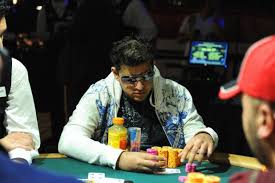
Pakistan is grappling with a growing mental health crisis, driven by a range of social, economic, and cultural factors. One often overlooked contributor to this crisis is gambling addiction, which continues to affect individuals and communities despite its illegal status. As underground gambling operations thrive and online platforms gain popularity, the mental health consequences of gambling addiction are becoming increasingly evident. Gambling addiction not only leads to financial and social devastation but also deepens the mental health struggles of both individuals and society. In this article, we explore how gambling addiction is worsening Pakistan’s mental health crisis and the broad psychological effects it has on those affected.
Escalating Anxiety and Depression
Gambling addiction takes a severe toll on mental health, triggering heightened levels of anxiety and depression. Gamblers often experience intense worry and fear as they lose money and become overwhelmed by their growing debts. The pressure to win back lost funds can quickly lead to feelings of desperation, which only fuel anxiety. As they chase their losses, many addicts fall into a cycle of self-loathing, guilt, and hopelessness. These emotions spiral into depression, with gamblers feeling trapped by their situation. The initial excitement of gambling fades as the losses mount, replaced by an overwhelming sense of failure and regret. The emotional turmoil associated with gambling addiction can worsen existing mental health conditions and create new psychological struggles, making it harder for individuals to break free from the cycle.
Family Stress and Breakdown
The psychological toll of gambling addiction doesn’t stop at the individual level; it ripples through families, adding to the overall mental health burden. In Pakistan, where family relationships are foundational to social well-being, the effects of gambling addiction can be devastating. Spouses, children, and other family members often bear the brunt of the addict’s behavior, suffering from the stress, anxiety, and financial instability caused by their loved one’s gambling. Gamblers often prioritize their addiction over family responsibilities, neglecting their loved ones’ emotional and financial needs. This neglect can lead to conflicts, arguments, and emotional distancing within the family, resulting in heightened stress for everyone involved. In many cases, gambling addiction leads to divorce, domestic violence, or the dissolution of family units, which further exacerbates mental health issues.
The Link Between Gambling and Suicide
One of the most serious mental health consequences of gambling addiction is the increased risk of suicide. In many cases, individuals who feel overwhelmed by their losses, debts, and social shame may see suicide as their only way out. The pressure to keep gambling in an attempt to recover losses leads to an emotional and financial dead-end, where despair sets in. In Pakistan, the stigma surrounding gambling and mental health makes it even harder for individuals to seek help. The secrecy surrounding addiction often isolates gamblers, leaving them with no support system. As a result, their mental health deteriorates, and in some tragic cases, they may turn to suicide as a means of escaping the overwhelming stress. The link between gambling addiction and suicide highlights the urgent need for mental health interventions and more public awareness of the risks of gambling.
The Impact on Youth and Mental Health Development
The rise of online gambling, including sports betting and virtual casinos, has made gambling more accessible to Pakistan’s youth, compounding the mental health challenges they already face. Young people, who are particularly vulnerable to addiction, often view gambling as a quick path to wealth and excitement. However, the psychological consequences of gambling addiction can be especially damaging for young gamblers, as they may not have the emotional maturity or coping skills to handle the pressure. Adolescents involved in gambling are more likely to engage in risky behaviors, such as borrowing money, stealing, or engaging in criminal activities to fund their habit. These actions can lead to strained relationships with family and friends, as well as academic and social difficulties. As their addiction deepens, young gamblers often experience anxiety, depression, and a sense of hopelessness about their future.
Lack of Mental Health Resources for Gambling Addiction
One of the most significant barriers to addressing the mental health consequences of gambling addiction in Pakistan is the lack of adequate treatment resources. While the country has some mental health services, few cater specifically to gambling addiction. As gambling addiction is not widely recognized as a mental health disorder, many healthcare professionals are ill-equipped to provide the necessary support. This gap in specialized treatment options means that those struggling with both gambling addiction and mental health issues often go untreated. The absence of counseling, therapy, and support groups for gambling addicts leaves many individuals isolated in their distress. Without proper intervention, they may feel trapped, unable to escape the cycle of addiction and psychological suffering. Additionally, the stigma surrounding both addiction and mental illness in Pakistan prevents many individuals from seeking help in the first place.
Social Isolation and Stigma
The stigma attached to gambling addiction further compounds its mental health effects. In a conservative society like Pakistan, gambling is often seen as a moral failing, and individuals struggling with addiction are frequently met with judgment and ostracism. This social rejection causes further psychological harm, leading to feelings of shame, guilt, and isolation. Gamblers may avoid reaching out for help, afraid of being labeled or shunned by their communities. The fear of stigma not only prevents individuals from seeking treatment but also exacerbates their sense of hopelessness and isolation. The longer they remain silent, the more their mental health deteriorates. For those addicted to gambling, the combination of addiction and social exclusion can be devastating, leading to a complete breakdown in their ability to function socially and emotionally.
Conclusion
Gambling addiction is increasingly contributing to Pakistan’s mental health crisis, affecting individuals, families, and communities. The anxiety, depression, stress, and suicidal tendencies that stem from gambling addiction compound the existing mental health challenges in the country. The financial instability, family breakdown, and social isolation that accompany addiction worsen the psychological toll, leading to deeper mental health struggles. Without adequate mental health resources and support systems tailored to gambling addiction, those affected will continue to suffer in silence. Pakistan needs to recognize gambling addiction as a serious mental health issue and take concrete steps to provide treatment and support to those who need it. Only by addressing this problem head-on can the country begin to alleviate the mental health burden caused by gambling addiction and ensure a healthier future for all its citizens.
Experience Thrills and Big Rewards at KKClub Casino – Pakistan’s Premier Gaming Hub!



